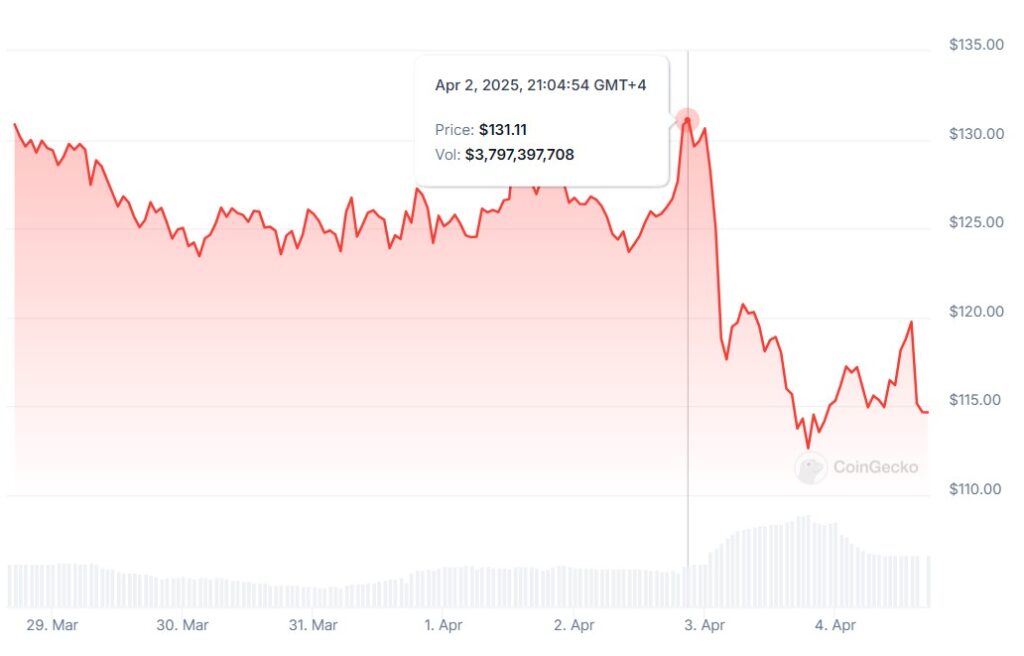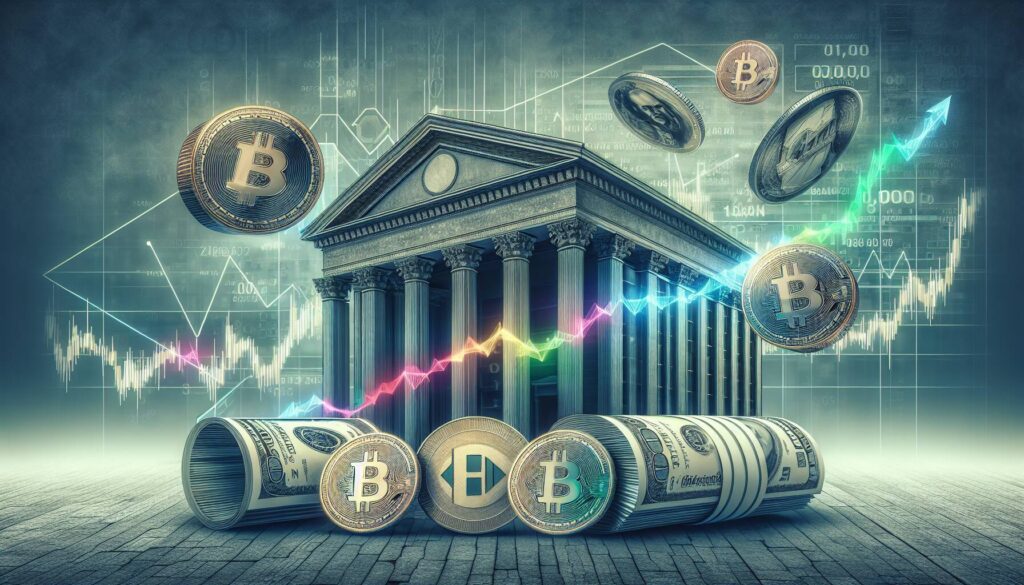In recent days, the cryptocurrency world has been buzzing with news from the Solana ecosystem, particularly surrounding significant transactions made by some of its largest investors, often referred to as “whales.” These whales are investors who hold large quantities of Solana (SOL) tokens, and a recent event has brought their activities into the spotlight.
In April 2021, four major whale addresses staked a whopping 1.79 million SOL tokens, which were then valued at approximately $37.7 million. Fast forward to April 4, 2024, when this stash was unlocked, marking what blockchain analysts at Arkham Intelligence termed “the largest single-day unlock of staked SOL.” At the time of the unlock, the value of these tokens had skyrocketed to around $206 million, showcasing a staggering 446% increase in value over the staking period.
“The next similar unlock is not expected until 2028,” notes Arkham Intelligence, highlighting the rarity of such events in the Solana landscape.
Immediately following the unlock, a flurry of selling activity took place. Data revealed that the whales had unstaked more than 420,000 SOL tokens, translating to nearly $50 million. Among these transactions, one wallet alone sold nearly 260,000 SOL tokens, worth over $30 million, while three other wallets collectively offloaded around $16 million in SOL.
At present, those four wallets still retain about 1.38 million SOL tokens, now valued at approximately $160 million, indicating they may still have substantial holdings despite recent sell-offs. This comes at a time when the price of Solana has seen a decline; on April 2, SOL peaked at $131.11, but within just two days, it dropped roughly 12% to around $114.66.
This recent unstaking event is particularly noteworthy against the backdrop of another sizeable unlock from the now-bankrupt crypto exchange FTX. On March 4, FTX and its trading arm, Alameda Research, unstaked over 3 million SOL tokens, worth around $431 million at the time. Since November 2023, FTX has sold nearly 7.83 million SOL tokens for about $986 million, reflecting the tumultuous history the exchange has faced in the evolving crypto market.
Impact of Solana Whale Token Unloading
The recent offloading of Solana tokens by whales is noteworthy and may have implications for investors and the market as a whole.
- Significant Stake Unlocking:
- Four whale addresses staked 1.79 million SOL tokens, initially worth approx. $37.7 million, in April 2021.
- The staked tokens were unlocked on April 4, 2023, with a value skyrocketing to about $206 million, a 446% gain.
- Next major unlock is not expected until 2028, leading to potential market impacts pre and post unlock events.
- Whale Selling Activity:
- After the unlock, whales sold over 420,000 SOL tokens, roughly worth $50 million.
- One wallet alone offloaded nearly 260,000 SOL tokens for over $30 million.
- Remaining holdings by these wallets still amount to 1.38 million SOL tokens valued at approximately $160 million.
- Price Volatility:
- As of April 2, SOL peaked at $131.11 but dropped by 12% to $114.66 within two days after the unlock.
- Such price volatility can influence investor sentiment and market behavior, potentially creating buy or sell opportunities.
- Comparison to Other Unstaking Events:
- FTX and Alameda Research also recently unstaked over 3 million SOL tokens worth about $431 million, marking a significant activity in the market.
- Understanding these large market movements may help investors gauge future trends and risks associated with SOL.
The actions of whale investors can significantly impact market dynamics, and staying informed about such events could be crucial for managing personal investments.
Whale Maneuvers: Analyzing Solana’s Recent Token Unloading
The recent movements among Solana whales signal both significant gains and a critical moment in the crypto landscape. With the unleashing of 1.79 million SOL tokens, which had been staked for nearly four years, these whale activities have garnered attention not only for the sheer scale of the unlock but also for the subsequent market response. The decision to cash in after a hefty 446% gain indicates a strategic play that might influence Solana’s market dynamics in various ways.
By comparing this recent event to similar occurrences within the crypto ecosystem, we can identify specific advantages and disadvantages. For instance, the well-timed offloading of substantial assets provides liquidity and fosters confidence among smaller investors. However, the large sell-off can also trigger market volatility, particularly with SOL’s price dipping to $114.66 right after the unlock. This could deter potential new investors who might view the situation as an indicator of declining confidence from major holders.
Furthermore, the timing of the unlock is particularly noteworthy. The next major unlock isn’t projected until 2028, which might stabilize the market in the long term but can also create uncertainty as traders await future opportunities. In contrast, additional unstaking occurrences from entities like FTX, which offloaded over 3 million SOL tokens recently, demonstrate a compounding effect on market sentiments. While FTX’s actions appear to be an attempt to recover from insolvency, Solana whale moves seem more calculated towards realizing profits, potentially leaving smaller investors feeling cautious.
These developments could financially benefit active traders and market analysts who are adept at interpreting blockchain signals. Whales may capitalize on their timing, but the general investor community may feel pressure as they navigate the fluctuating environment. Conversely, projects that rely on stability, such as DeFi protocols and decentralized applications built on Solana, could face challenges as token volatility could impact users’ willingness to engage, thereby affecting ecosystem growth.
In essence, while the recent movements of Solana’s whale accounts have brought forth significant capital gains, they also pose an inherent risk of market instability, impacting both large holders and everyday traders within this vibrant cryptocurrency market.
















